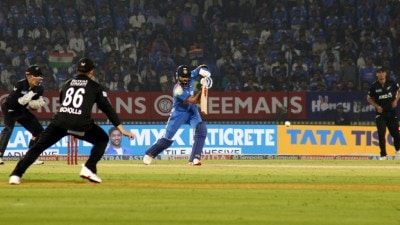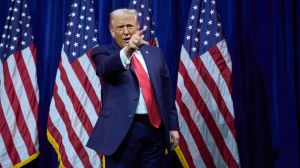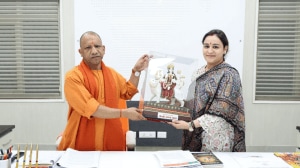Test of wisdom
IF May 11 was a test of India's will, this is now a test of its wisdom. This is not a moment for an emotional reaction. Nor is it time to sc...

IF May 11 was a test of India8217;s will, this is now a test of its wisdom. This is not a moment for an emotional reaction. Nor is it time to script a new nuclear scoreboard and get trapped in a 8220;deadly8221; arms race which the world takes for granted. There is no place for emotion in the craft of high diplomacy and strategy. The test of a leadership8217;s wisdom lies in sculpting a policy framework with absolutely cool and calculated detachment and then, if necessary, creating the popular mood and emotion to back it. This is where supreme national interest and genuine patriotism lie, not in grandstanding or playing to the gallery.
How is this best done in an unabashedly, overtly nuclearised subcontinent? Perhaps if we look at the scene with detachment which is not easily done in the face of such provocative Pakistani rhetoric it would be quite obvious that Chagai makes no substantive difference to the larger question of India8217;s security. Since the late-eighties India has accepted Pakistan8217;s nuclear capability as afact and much of its policy making has been predicated on that. All that Pakistan has now done is to effect the last turn of the screwdriver. Momentarily, we can heave a sigh of relief. Now Pakistan8217;s Western friends have no choice but to impose on it the same sanctions that they have inflicted on us.
Pakistan will be hurt much more; its economy is enormously more import-driven, deficit-and debt-ridden than ours and its society, particularly the upper crust, is more effete than that in most poor countries. Ideologically and politically, it has often looked like a failed state. Nawaz Sharif8217;s desperate call for austerity, tax compliance and living on one meal a day is utter self-delusion. The elites never pay for any such misadventures and the poor, already with their backs to the wall, have very little left to chip in with. But this, beggar-my-neighbour, is just the sentiment we must avoid.
We must not let our Pakistan obsession distract us from the fundamentals of our long-term nuclear and foreign policyframework. We must not forget that in 1998, our world doesn8217;t begin and end at the Line of Control in Kashmir.
Our nuclear programme was never meant, and should never be seen, to be directed only at Pakistan. If Pakistan was our only security concern, then the ideal world for us was a non-nuclear subcontinent where our conventional superiority would have enabled us to roll over Pakistan at any time of our choosing. We have rightly or wrongly looked at nuclear weapons as an essential pre-requisite for a larger role on the world stage besides giving us a deterrent against China, a likely antagonist conventionally stronger than us.
After the first week8217;s silly and often irresponsible euphoria, the Vajpayee Government has now shown some clear signs of getting diplomacy back on track. Some damage may take a long time to repair but in the past few days India has spoken a language of wisdom, moving closer to the CTBT and offering the world, including Pakistan, a non-first-use agreement. It doesn8217;t matter ifthe Pakistanis ridicule that. They have a problem: they can only relate to the world through a hostile India. They have no other leverage. India wants a place very much its own.
It is therefore for India now to take the lead, break the international stereotypes of an inevitable subcontinental Armageddon. The choice is either a debilitating arms race with Pakistan, or a firm, confident move towards the status India deserves on the world stage. Any comparison with Pakistan diminishes that and the true vindication of India8217;s national, consensual worldview now lies in a policy that would demonstrate the wisdom to rise above that temptation.
- 01
- 02
- 03
- 04
- 05































